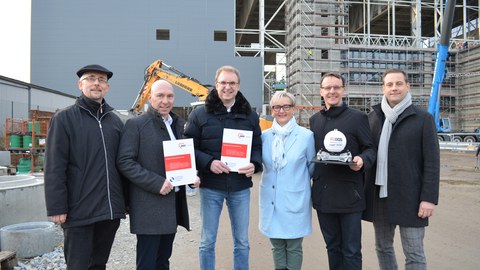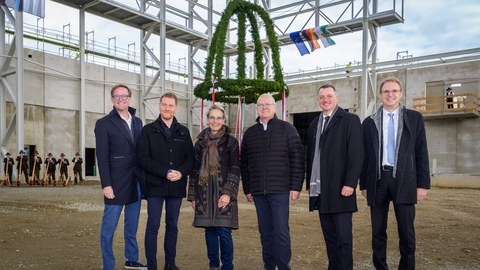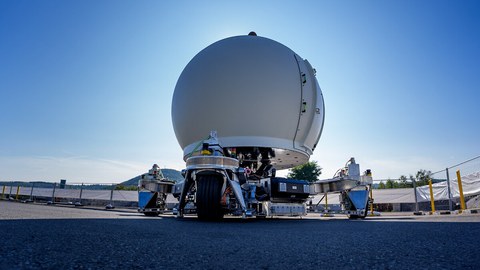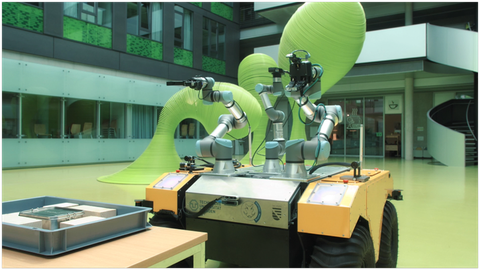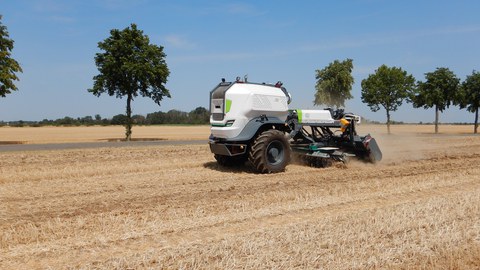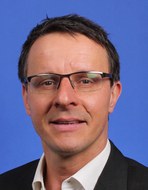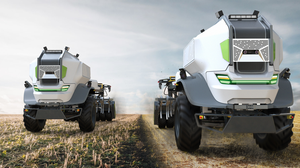 © Copyright
© Copyright
Researching the Mobility of the Future
The Hoyerswerda Research Center is bringing high-tech research into the mobility of the future to Lusatia. To this end, transport scientists from the TUD are working with mechanical engineers and computer scientists to plan a Smart Mobility Lab (SML) in the Schwarzkollm industrial estate near Hoyerswerda. The aim is to develop the SML into a technological accelerator for the mobility of tomorrow.
By the end of 2026, this globally unique research infrastructure will be created to advance research and testing of automated and networked road and air traffic, autonomous agricultural machinery and robotics for various applications in one place. Networked drones, robots and other automated, remote-controlled, flying and driving vehicles will form swarms and demonstrate how traffic flows can be organized more efficiently and in a way that conserves resources. The robot swarms can also help to recultivate the soil damage caused by coal mining in Lusatia. Another field of application is the development of emergency deployment swarms for disaster areas.
Construction of the SML test hall began in 2024. It will house the research and testing facilities in the future. To the construction site camera
Last but not least, the construction of this real-world laboratory for digital-based mobility technologies will also create jobs for various qualifications. To the job offers

